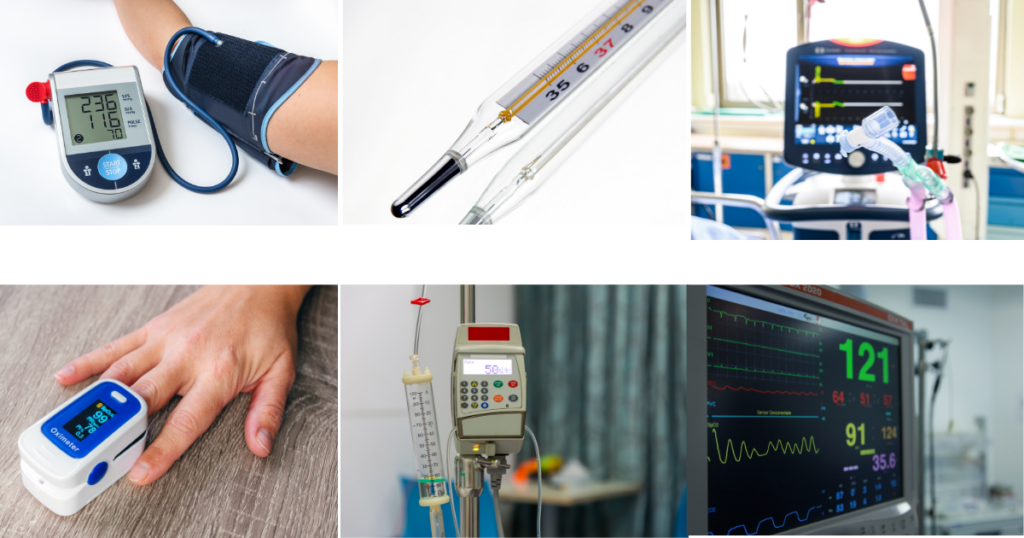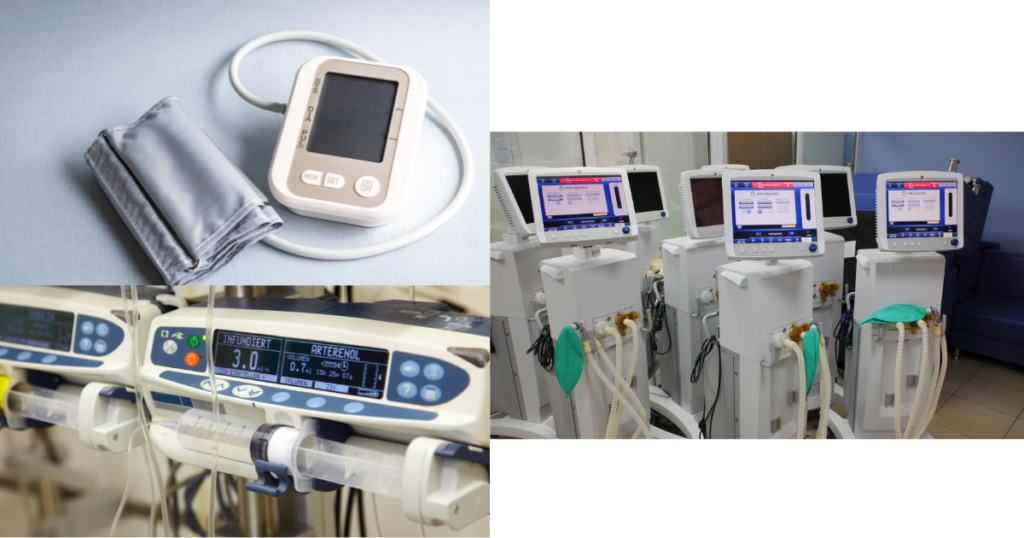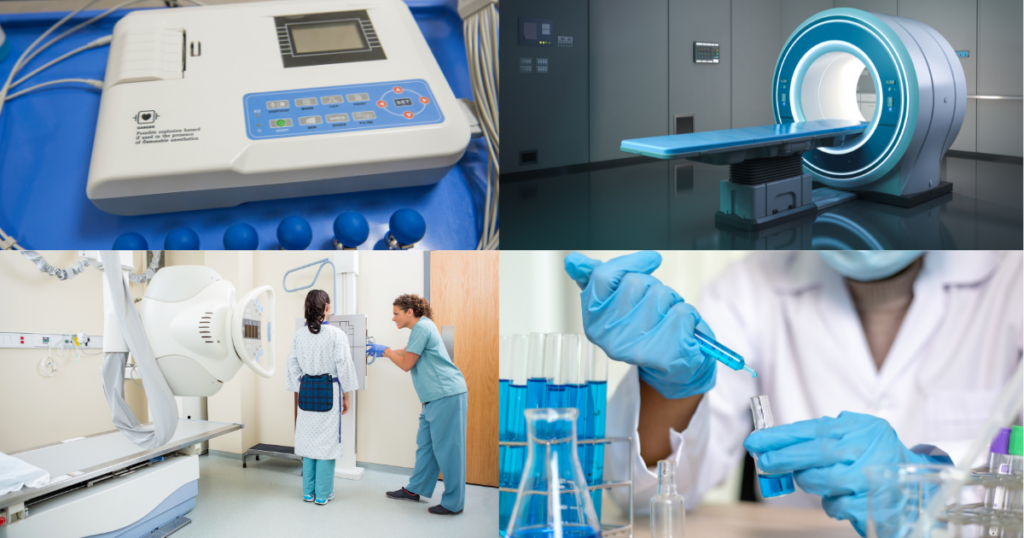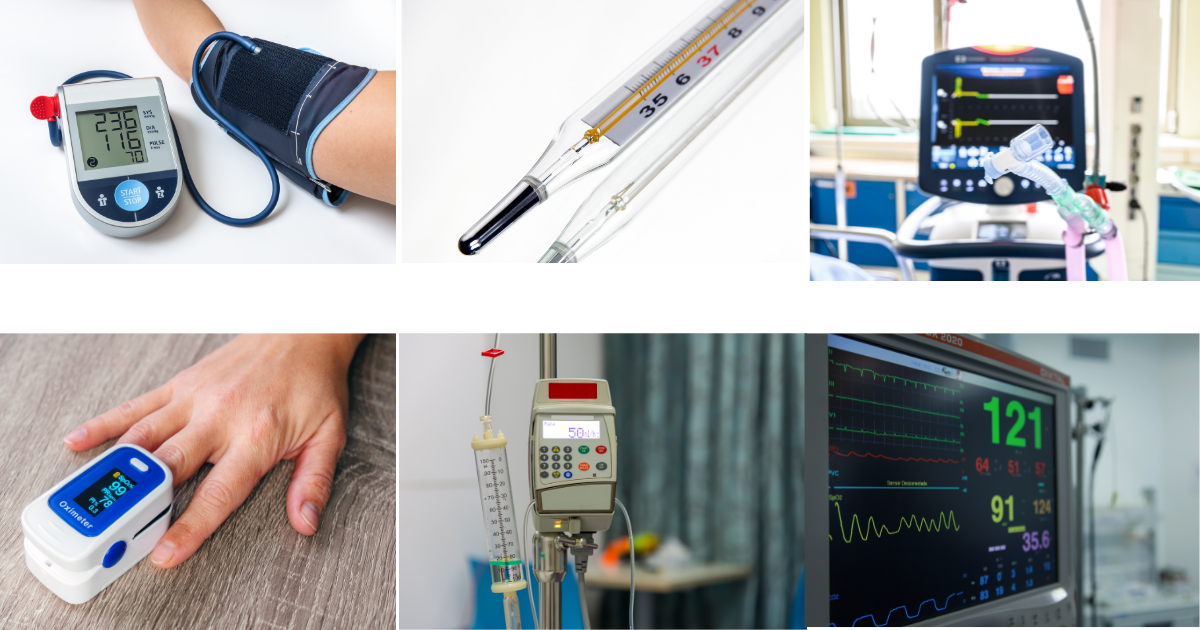In healthcare, the margin for error is minuscule. From diagnosing illnesses to delivering treatments, biomedical instruments are at the core of every patient interaction. These devices must operate with absolute precision to ensure accurate diagnoses, effective therapies, and ultimately, patient safety. Accurate biomedical instruments calibration is not just a best practice—it is a critical component of maintaining healthcare excellence.
This article explores the significance of calibration, the risks of neglect, and how it directly influences healthcare performance.
Biomedical instruments and their calibration
Biomedical instruments refer to the medical devices used for diagnosing, monitoring, and treating patients. These include but are not limited to:
- Diagnostic instruments: Blood pressure monitors, thermometers, electrocardiograms (ECG), and ultrasound machines.
- Therapeutic devices: Ventilators, infusion pumps, and defibrillators.
- Monitoring tools: Pulse oximeters, capnographs, and patient monitors.
- Laboratory equipment: Blood analyzers, centrifuges, and spectrophotometers.

What is calibration?
Calibration is the process of testing and adjusting the performance of these instruments against a recognized standard. It ensures that the measurements provided by these devices remain accurate and within acceptable tolerances. This process involves comparing an instrument’s output with a traceable reference, identifying deviations, and making necessary adjustments to restore accuracy.
Why accurate calibration is crucial for biomedical instruments
1. Safeguarding patient safety

Every reading and output from a biomedical device directly impacts patient care. For instance:
- Blood pressure monitors: If miscalibrated, these devices may fail to detect hypertension or hypotension, leading to inappropriate medical interventions.
- Ventilators: Incorrect settings can result in under-ventilation or over-ventilation, endangering critically ill patients.
- Infusion pumps: Errors in medication dosages delivered through infusion pumps can cause life-threatening complications.
Calibration ensures these devices provide reliable data, minimizing risks and protecting patient health.
2. Enhancing diagnostic accuracy

Diagnostic tools serve as the foundation for determining a patient’s condition. Any error in their performance can lead to misdiagnosis or delayed treatment. Examples include:
- ECG machines: Misaligned readings could fail to detect cardiac irregularities, delaying critical interventions.
- Imaging systems (MRI, CT, X-Ray): Even minor discrepancies in calibration can distort imaging quality, resulting in inaccurate diagnoses.
- Laboratory analyzers: Errors in blood or tissue sample analysis can misguide medical professionals, affecting treatment plans.
Accurate calibration eliminates inconsistencies, ensuring precise and reproducible results.
3. Meeting regulatory and compliance standards
Healthcare providers are governed by stringent regulations to maintain the quality of care. Some key standards include:
- ISO 15189: For medical laboratory quality and competence.
- FDA guidelines: Ensuring the safety, performance, and reliability of medical devices.
- IEC standards (e.g., IEC 60601): For the safety and effectiveness of electrical medical equipment.
Regular calibration helps facilities stay compliant with these standards, ensuring readiness for audits and avoiding legal or financial penalties.
4. Prolonging equipment life and reducing costs
Biomedical instruments are a significant investment for healthcare providers. Regular calibration ensures that these devices:
- Operate at their optimal performance levels.
- Avoid unnecessary wear and tear caused by undetected inaccuracies.
- Require fewer costly repairs and replacements.
By identifying and addressing issues early, calibration extends the lifespan of medical devices, ultimately reducing operational costs.
5. Improving operational efficiency
Malfunctioning or inaccurate instruments disrupt healthcare workflows and delay procedures. For example:
- Repeated tests: Misaligned equipment often leads to inconclusive or inaccurate results, necessitating repeated tests and wasting valuable time.
- Delayed treatments: Faulty devices can slow down diagnostic and therapeutic processes, impacting patient throughput.
Proper calibration ensures uninterrupted operations, enhancing efficiency and resource utilization.
Common biomedical instruments requiring calibration
1. Diagnostic instruments
- Thermometers: Accurate body temperature measurements are critical for diagnosing infections and fevers.
- Blood pressure monitors: Accurate blood pressure readings are vital for managing cardiovascular health.
2. Laboratory equipment
- Spectrophotometers: Used for chemical and biochemical analysis, these require precise calibration for accurate readings.
- Centrifuges: Proper calibration ensures balanced rotational speeds, critical for sample analysis.
3. Monitoring devices
- Pulse oximeters: These devices measure oxygen saturation in blood. Calibration ensures accurate readings, especially in critical care settings.
- Patient monitors: Continuous monitoring of vital signs like heart rate and respiratory rate demands absolute accuracy.
4. Therapeutic devices
- Ventilators: These life-saving devices require precise calibration to ensure appropriate respiratory support.
- Infusion pumps: Delivering exact medication dosages is crucial for patient safety.
Consequences of neglecting calibration
Failing to calibrate biomedical instruments can have severe repercussions:
- Patient harm: Misdiagnoses, incorrect treatments, or delayed interventions can have fatal consequences.
- Operational disruptions: Inaccurate equipment leads to delays and inefficiencies, affecting patient care quality.
- Non-compliance risks: Healthcare providers risk penalties, loss of accreditation, and reputational damage.
- Increased costs: Frequent breakdowns, repeated testing, and equipment replacements inflate operational expenses.
The benefits of regular calibration far outweigh its costs, making it a non-negotiable aspect of healthcare operations.
How prism calibration supports healthcare facilities
At Prism Calibration, we specialize in providing tailored calibration services for biomedical instruments. Our expertise ensures that healthcare providers meet the highest standards of accuracy and compliance.
What sets us apart?
- Wide range of services: From diagnostic tools to therapeutic devices, we calibrate a comprehensive array of biomedical instruments.
- Regulatory compliance: Our services align with ISO, FDA, and IEC standards, ensuring your facility remains audit-ready.
- Cutting-edge technology: We use advanced calibration tools to guarantee precision and reliability.
- Trained experts: Our team comprises experienced professionals committed to excellence.
- Detailed documentation: Comprehensive calibration reports provide traceability and aid compliance audits.
Implementing a comprehensive calibration plan
- Inventory management: Maintain a database of all instruments requiring calibration.
- Define calibration intervals: Base schedules on manufacturer guidelines, device usage, and regulatory requirements.
- Partner with experts: Collaborate with accredited service providers like Prism Calibration for reliable results.
- Train staff: Educate healthcare professionals about the importance of calibration and maintenance.
- Review and update programs: Periodically assess calibration plans to identify and address gaps.
Conclusion
Accurate calibration of biomedical instruments is essential for delivering safe, efficient, and high-quality healthcare. It safeguards patient outcomes, enhances diagnostic precision, ensures compliance, and optimizes operational efficiency. Neglecting calibration not only jeopardizes patient safety but also exposes healthcare providers to legal, financial, and reputational risks.
By partnering with trusted experts like Prism Calibration, healthcare facilities can uphold the highest standards of precision and reliability. Remember, in the world of medicine, every measurement matters.
Author Bio
Mr. Parthiv Kinariwala is a leading expert in calibration and testing services, with over 20 years of experience in the industry. As the founder of Prism Calibration, established in 2004, Mr. Kinariwala has been at the forefront of delivering precise and reliable calibration, testing, and validation solutions across various industries. His expertise in providing services that meet international calibration standards has earned the trust of major clients, including Reliance Industries, Zydus Cadila, Indian Oil, ONGC, Adani, and Tata.
With a deep understanding of instrumentation, measurement accuracy, and industrial testing, Mr. Kinariwala ensures that each client receives exceptional service tailored to their specific needs. His unwavering commitment to quality and precision has established Prism Calibration as a trusted partner for some of the largest and most respected organizations in the industry.







